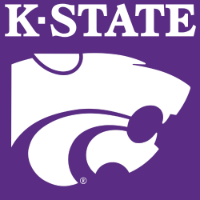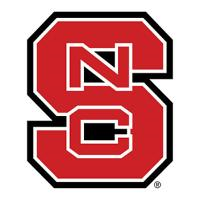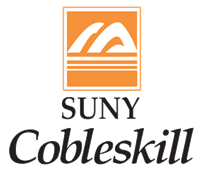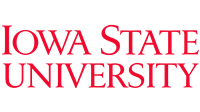What do they do?
Directly supervise and coordinate the activities of agricultural, forestry, aquacultural, and related workers.
Also known as:
Animal Care Supervisor, Animal Caretaker Supervisor, Animal Research Facility Supervisor, Broiler Supervisor, Cattle Manager, Crew Foreman, Crew Supervisor, Facility Manager, Facility Supervisor, Farm Supervisor, Fish Culture Supervisor, Fish Hatchery Manager, Fisheries Manager, Harvest Manager, Harvest Supervisor, Harvesting Supervisor, Hatchery Manager, Logging Crew Foreman, Logging Crew Supervisor, Logging Supervisor, Marine Site Manager, Orchard Manager, Pest Management Supervisor, Vivarium Manager, Wildlife Manager
-
4.5%
Change
Ranks #38 in job growth rate130Job Openings
Ranks #25 in net job growth
Colleges with the most graduates that become First-Line Supervisors of Farming, Fishing, and Forestry Workers
-
SUNY College of Agriculture and Technology at Cobleskill
Cobleskill, NY
-
University of Wisconsin-River Falls
River Falls, WI
-
North Carolina State University at Raleigh
Raleigh, NC
-
University of Florida
Gainesville, FL
-
Virginia Polytechnic Institute and State University
Blacksburg, VA
Looking for colleges that offer a specific major? Use the College Match Tool to find your best-matched schools and discover your estimated Net Price!
- Doctorate or Professional Degree (<1%)
- Master's degree (2%)
- Bachelor's degree (10%)
- Associate's degree (5%)
- Some college, no degree (17%)
- High school diploma equivalent (30%)
- Less than high school diploma (35%)
Most Popular Majors that prepare First-Line Supervisors of Farming, Fishing, and Forestry Workers
-
#1
-
Degrees Granted
7,409
-
Female Students
6,072
-
Male Students
1,337
-
Median Starting Salary
$35,800
-
-
#2
-
Degrees Granted
1,877
-
Female Students
758
-
Male Students
1,119
-
Median Starting Salary
$43,200
-
-
#3
-
Degrees Granted
1,050
-
Female Students
390
-
Male Students
660
-
Median Starting Salary
$45,600
-
-
#4
-
Degrees Granted
820
-
Female Students
280
-
Male Students
540
-
Median Starting Salary
$41,500
-
-
#5
-
Degrees Granted
634
-
Female Students
282
-
Male Students
352
-
Median Starting Salary
$45,600
-
People in this career often have these skills:
- Critical Thinking - Using logic and reasoning to identify the strengths and weaknesses of alternative solutions, conclusions, or approaches to problems.
- Coordination - Adjusting actions in relation to others' actions.
- Speaking - Talking to others to convey information effectively.
- Monitoring - Monitoring/Assessing performance of yourself, other individuals, or organizations to make improvements or take corrective action.
- Reading Comprehension - Understanding written sentences and paragraphs in work-related documents.
- Time Management - Managing one's own time and the time of others.
- Management of Personnel Resources - Motivating, developing, and directing people as they work, identifying the best people for the job.
- Active Listening - Giving full attention to what other people are saying, taking time to understand the points being made, asking questions as appropriate, and not interrupting at inappropriate times.
- Social Perceptiveness - Being aware of others' reactions and understanding why they react as they do.
- Instructing - Teaching others how to do something.
- Operations Monitoring - Watching gauges, dials, or other indicators to make sure a machine is working properly.
People in this career often know a lot about:
- Administration and Management - Knowledge of business and management principles involved in strategic planning, resource allocation, human resources modeling, leadership technique, production methods, and coordination of people and resources.
- Production and Processing - Knowledge of raw materials, production processes, quality control, costs, and other techniques for maximizing the effective manufacture and distribution of goods.
- Customer and Personal Service - Knowledge of principles and processes for providing customer and personal services. This includes customer needs assessment, meeting quality standards for services, and evaluation of customer satisfaction.
- English Language - Knowledge of the structure and content of the English language including the meaning and spelling of words, rules of composition, and grammar.
- Mechanical - Knowledge of machines and tools, including their designs, uses, repair, and maintenance.
- Education and Training - Knowledge of principles and methods for curriculum and training design, teaching and instruction for individuals and groups, and the measurement of training effects.
People in this career often have talent in:
- Oral Comprehension - The ability to listen to and understand information and ideas presented through spoken words and sentences.
- Problem Sensitivity - The ability to tell when something is wrong or is likely to go wrong. It does not involve solving the problem, only recognizing that there is a problem.
- Oral Expression - The ability to communicate information and ideas in speaking so others will understand.
- Near Vision - The ability to see details at close range (within a few feet of the observer).
- Speech Recognition - The ability to identify and understand the speech of another person.
- Speech Clarity - The ability to speak clearly so others can understand you.
- Deductive Reasoning - The ability to apply general rules to specific problems to produce answers that make sense.
- Inductive Reasoning - The ability to combine pieces of information to form general rules or conclusions (includes finding a relationship among seemingly unrelated events).
- Information Ordering - The ability to arrange things or actions in a certain order or pattern according to a specific rule or set of rules (e.g., patterns of numbers, letters, words, pictures, mathematical operations).
- Category Flexibility - The ability to generate or use different sets of rules for combining or grouping things in different ways.
- Far Vision - The ability to see details at a distance.
People in this career often do these activities:
- Assign duties or work schedules to employees.
- Record agricultural or forestry inventory data.
- Inspect products or operations to ensure that standards are met.
- Monitor animal behavior or condition.
- Train workers in farming, forestry, or hunting techniques.
- Treat animal injuries or illnesses.
- Confer with managers to make operational decisions.
- Communicate with other workers to coordinate activities.
- Evaluate quality of plants or crops.
- Coordinate forestry or agricultural activities.
- Schedule agricultural or forestry work.
- Operate farming equipment.
- Direct activities of agricultural, forestry, or fishery employees.
- Transport animals, crops, or equipment.
- Inspect equipment or facilities to determine condition or maintenance needs.
- Monitor organizational processes.
- Maintain personnel records.
- Maintain inventories of materials, equipment, or products.
- Monitor financial activities.
This page includes data from:

 Occupation statistics: USDOL U.S. Bureau of Labor Statistics Occupational Employment Statistics
Occupation statistics: USDOL U.S. Bureau of Labor Statistics Occupational Employment Statistics









